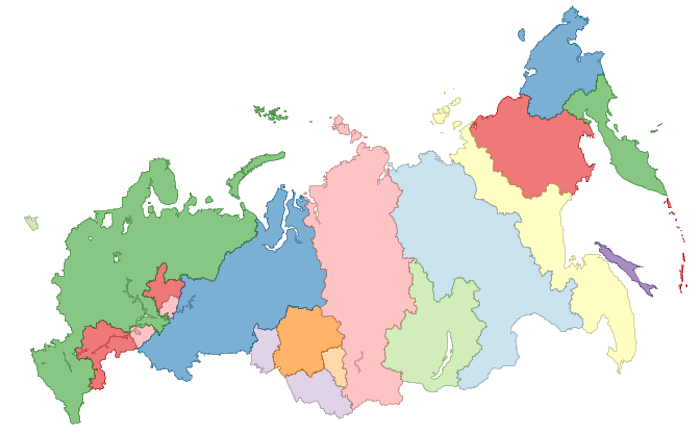For the Provocations series, in conjunction with UCI’s “The Future of Truth” conference
Given the recent attention on U.S.-Russia relations and comparisons, the team responsible for the “Future of Truth” workshop at UC Irvine decided to turn to Nina Khrushcheva, a participant in last year’s “What Cannot Be Said” forum for insight. Nina Khrushcheva is a professor of International Affairs at the New School, a senior fellow of World Policy Institute, and contributing editor to Project Syndicate: Association of Newspapers Around the World.
Khrushcheva was part of last year’s Forum for the Academy and the Public symposium, and contributed a commentary on political jokes to the “Provocations” series that preceded it. She has been writing commentaries for Project Syndicate on similarities, differences, and real and imagined ties between Donald Trump and Vladimir Putin, as well as giving interviews addressing issues associated with relations between Moscow and Washington. “The Future of Truth” will end with a panel on propaganda and disinformation, during which Russia will inevitably be discussed. I had the pleasure of discussing Russian-American relations with Khrushcheva via email, in preparation for the conference.
OLIVIA HUMPHREY: How is the the current mood in Moscow? You have written that Moscow seemed “enchanted” by the results of the American presidential election. Are you working on a project relating to Russia that has been taking you there recently?
NINA KHRUSHCHEVA: Moscow is fascinated with the Trump election, and there’s a great range of responses here: how is this possible? Could America really be that idiotic? Is it still the great country we always thought it was? Do Americans think that a Putin-type leader is a great thing?
This is what I mean by enchanted, it is like watching a show — you hate it or you love it, and it doesn’t seem too real. There is hope for better relations, and fear that the current bad relations will last. Again, there is a wide spectrum of reactions, from those who are happy with the election to those who are disgusted with it.
At the moment, I am writing a new book trying to explain Russia as an “indispensable nation” due to its mammoth size of 11 time zones, stretching from Kaliningrad to Kamchatka.
Do you think it is useful to draw similarities between how Putin and Trump deal with the media — especially given the events of the last few days, and the somewhat ominous introduction into American discourse of the “alternative fact”?
Putin and Trump are exhibitionists and megalomaniacs, and they feel that facts belong to them. That is, “they know better,” and if the facts contradict their agendas they feel it is their right to amend such facts, and tell the media that it is the duty of journalists to serve the state, and therefore the state’s message. While this is not unusual in Russia or countries with similarly autocratic forms of leadership for this to happen, for the United States to follow this path is rather inconceivable.
What do you think is most misleading about how Russia is being brought into discussions of the U.S. situation at present?
I discussed this in my last article, “America’s Russian Hypocrisy,” for Project Syndicate, and also my 2014 piece for Reuters about “Badenov” and Russians as favourite villains in Hollywood. Russia is considered an enemy even before it acts, and therefore all reports about the country are tainted by ideology and thus are propagandistic, even if often true.
In your January 17th “America’s Russian Hypocrisy” commentary, you said that ideally, “the US should devise a sound, thoughtful, and measured approach toward Russia.” Do you think this can be anything more than a pipe dream for the next four years?
I don’t see Trump’s administration designing a thoughtful approach. On the other hand, a debate could arise between Trump’s desire to get straight into bed with Putin, and his cabinet’s wish to perhaps go on a few dates first. There may be some possibility within this debate for a measured policy, a sort of a diplomatic partnership.
I loved your point, in the same article, that “Russia was never fully welcome in the Western world order, much less able to participate in it on equal terms.” The continued existence of NATO in the post-cold war order is hard to explain from this perspective. Do you have any thoughts on the future of NATO under the Trump administration?
Trump has dismissed NATO, and then proceeded to confirm its importance to Theresa May. I don’t think NATO can be dissolved given that the other members want it. It could be (and should be) reformed — in fact, this should have been a while ago. Troops on the Russian border are an important balancing act, but going further than that would be a dangerous gamble against Putin.


